South Africa seeks $500 million in forex funding after budget impasse ends
South Africa poised for rate cut to bolster economy – Bloomberg poll
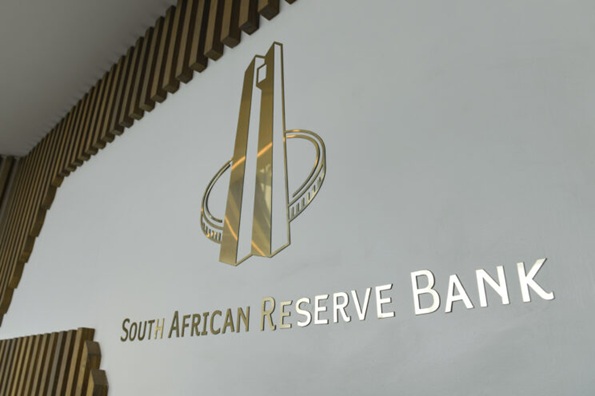
File photo: Bloomberg
- The decision, scheduled for 3 p.m. local time, is expected to be split, with four of the MPC’s six members predicted to back a cut and two a hold, according to a separate Bloomberg survey.
South Africa poised for rate cut to bolster economy – Bloomberg pollThe decision, scheduled for 3 p.m. local time, is expected to be split, with four of the MPC’s six members predicted to back a cut and two a hold, according to a separate Bloomberg survey.
The South African Reserve Bank looks set to ease borrowing costs on Thursday to support a faltering economy, before pausing to assess any further fallout from US President Donald Trump’s trade war.
Most economists polled by Bloomberg expect Governor Lesetja Kganyago’s monetary policy committee to reduce the benchmark interest rate by 25 basis points to a more than two-year low of 7.25%. Traders are also betting on a cut: forward rate agreements used to speculate on borrowing costs show they’re pricing in an 84% chance of a quarter-point cut.
The decision, scheduled for 3 p.m. local time, is expected to be split, with four of the MPC’s six members predicted to back a cut and two a hold, according to a separate Bloomberg survey. At its previous meeting in March, the committee paused an easing cycle after a cumulative reduction of 75 basis points amid escalating uncertainty about US tariffs.
Expectations of a cut are being reinforced by easing domestic concerns, with the annual inflation rate holding below 3% and amid optimism that Finance Minister Enoch Godongwana’s latest budget is expected to be approved by lawmakers. The National Treasury last week lowered its annual economic-growth forecast over the next three years to an average of 1.6% from 1.8% previously for the continent’s biggest economy, partly because of the trade turmoil unleashed by Trump.
The US leader’s decision to pause his reciprocal tariff increases until July also presents an opportunity for the central bank to act now.
“On the local front, fiscal risk has diminished meaningfully following indications that the budget is likely to pass, removing a key overhang,” said Keabetswe Mojapelo, an economist at FirstRand’s Rand Merchant Bank, who expects a 25 basis-point cut. “Externally, the pause in tariff escalations offers a window of policy space, allowing the MPC to act pre-emptively.”
The rand has been one of the world’s best-performing currencies since April 8, the day before Trump announced a 90-day pause on the reciprocal tariffs. It’s gained 8.6% since then, and traded at R17.94 per dollar by 8:36 a.m. in Johannesburg on Thursday.
Should risks materialise from further developments in the US trade war, policymakers will have the July meeting available to recalibrate their stance, he said.
Still, a cut may not be guaranteed, given key factors such as potential oil- and food-price shocks and the risk they pose to future inflation, said Shannon Bold, senior economist for macroeconometric modeling and forecasting at the Bureau for Economic Research.
Food inflation is expected to accelerate, driven by increased demand for meat, and a spike in vegetable prices because of disruptions from heavy rainfall during the recent harvesting season. An increase in the fuel levy from June 4 may also add pressure to prices.
“Given these risks, the Sarb may prefer a wait-and-see approach, maintaining rates to safeguard its inflation-fighting credibility while monitoring evolving domestic and global conditions,” she said.


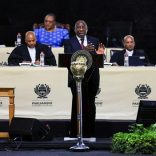
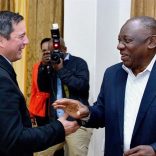


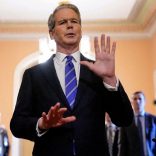
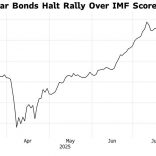





Leave a Reply
Be the First to Comment!
You must be logged in to post a comment.
You must be logged in to post a comment.